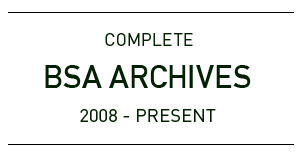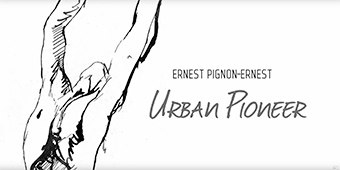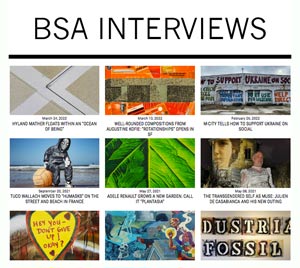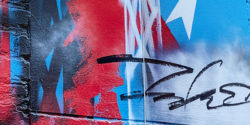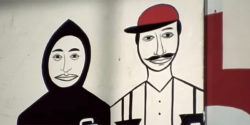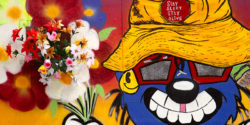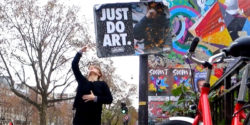Struggling to focus your eyes on evolving mysteries of the day, you may think that the world is visible at times through mottled glass. You can make out the forms, the gestures, the motions perhaps, but the identity and character are also formed and shaped by a filter, a storied thick glass filter. It’s a biomorphic embossed way to see things, like the office door leading into the darkened lair of a private detective, his cigarette smoke billowing over the brim of his dense gray fedora.
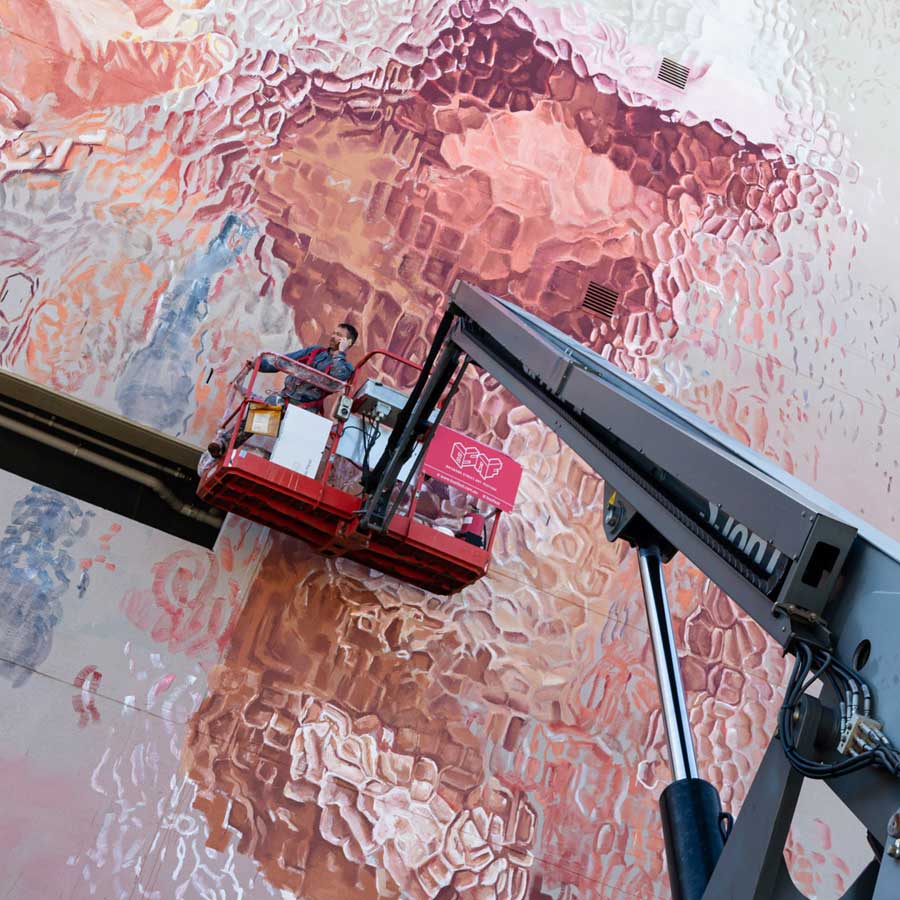
For Queensland, Australia’s Fintan Magee, it’s another challenge that he admirably meets artistically, painting the effect over two essential workers forms in this new mural. “The Arctic glass pattern in the painting was common in middle-class Queensland homes in the 1960s and was used in French doors and windows,” he tells us. “Some of my earliest memories of Queensland architecture was my father’s silhouette through the glass doors when he got home.”
Evocative of a middle-class life afforded to many rich countries in the decades following the end of World War II, those same associations are now aching reminders of how we’ve been duped – with banks and corporate captains gradually re-writing the laws to silently kill the middle class in stages, while the light keeps changing the forms behind the glass.
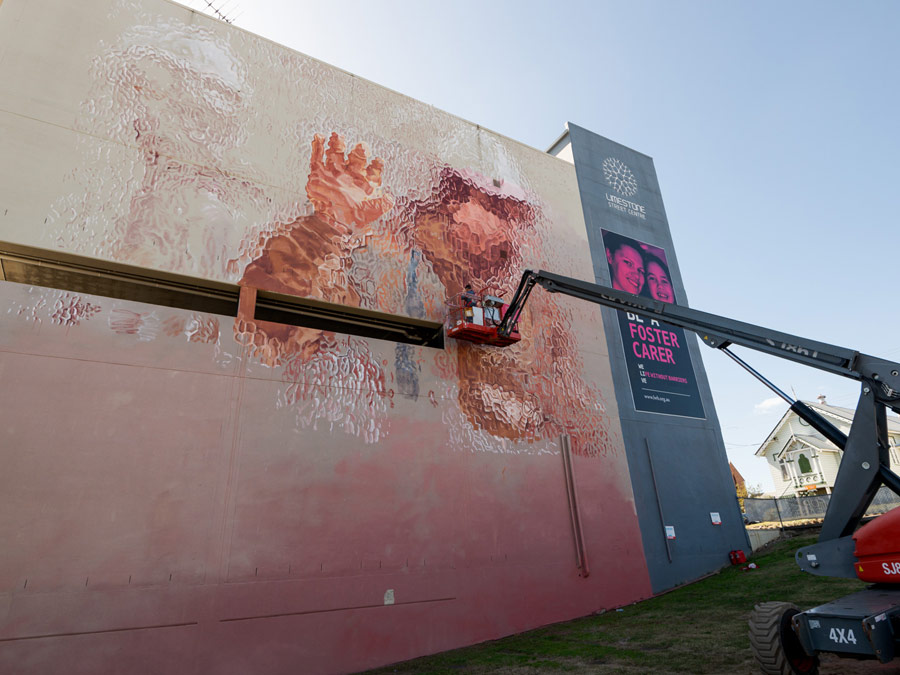
“The work explores the role of de-industrialization in urban communities and on the suburban fringes of Australia. The figures in the mural appear distant, disconnected, isolated, and breaking up,” he says. “As middle-class homes become increasingly out of reach for working-class Australians and lower-pay and job insecurity continues to shape how we work, this painting explores how nostalgia shapes political views and how workers view their communities and the outside world.”
To be absolutely timely, Magee says he is paying a tribute to those who have continued to work essential jobs, sometimes sacrificing, usually worrying, during this time of Covid-19 crisis, and both the forms here are also evoking the distances we feel from one another.
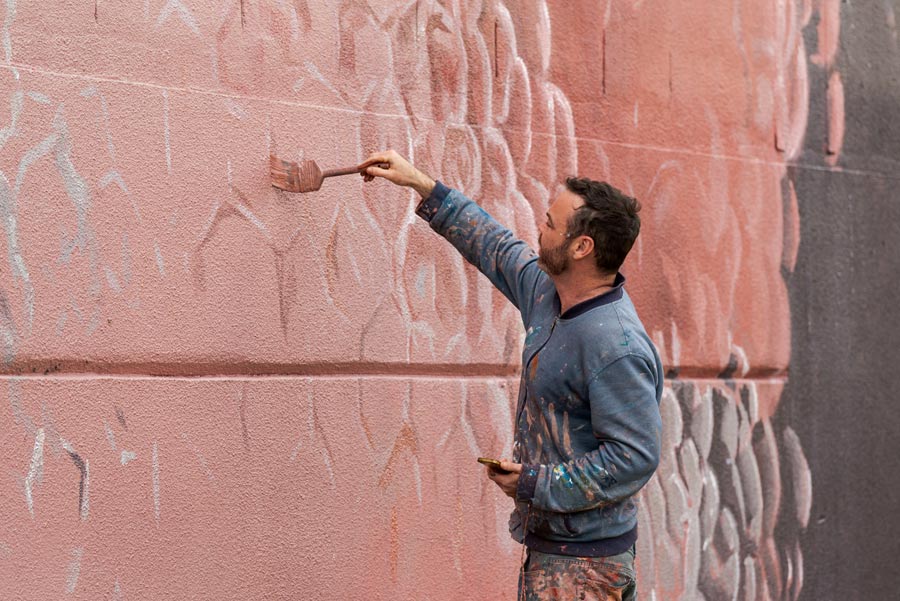
“The work specifically looks at two rail workers from the city of Ipswich. As Queensland was in lockdown, many people in management or admin roles were able to isolate, while many essential, transport, delivery, and medical staff continued working. Keeping our economy functioning and food supply moving. This painting pays tribute to these essential workers while proposing a reassessment of how they are valued in the post-COVID-19 world.”
Guess it depends on how you see them.
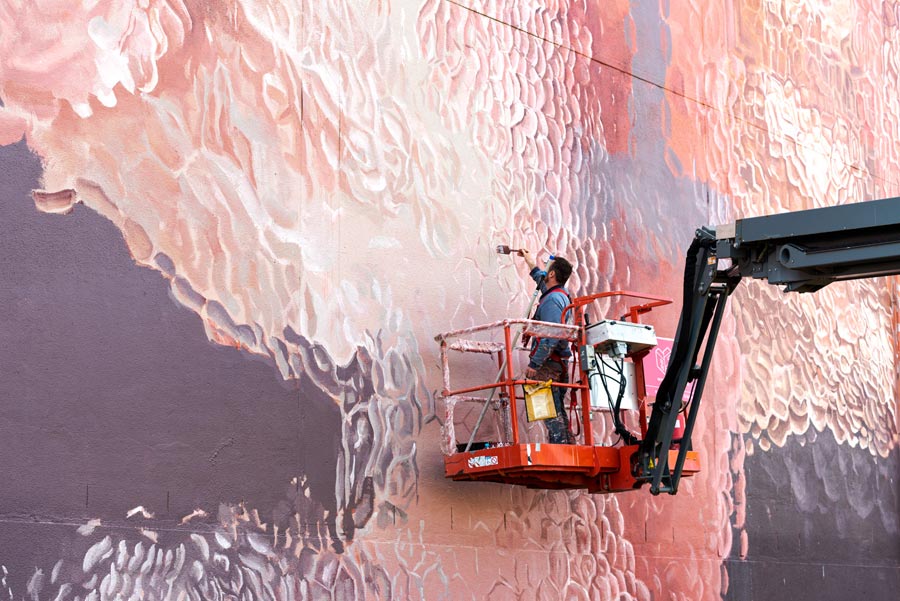
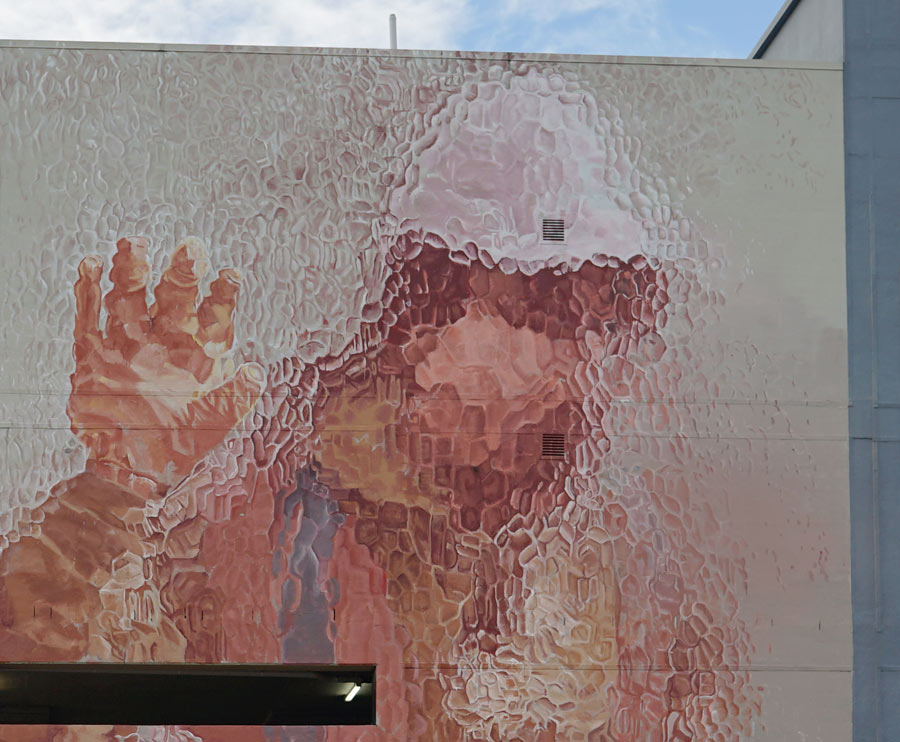
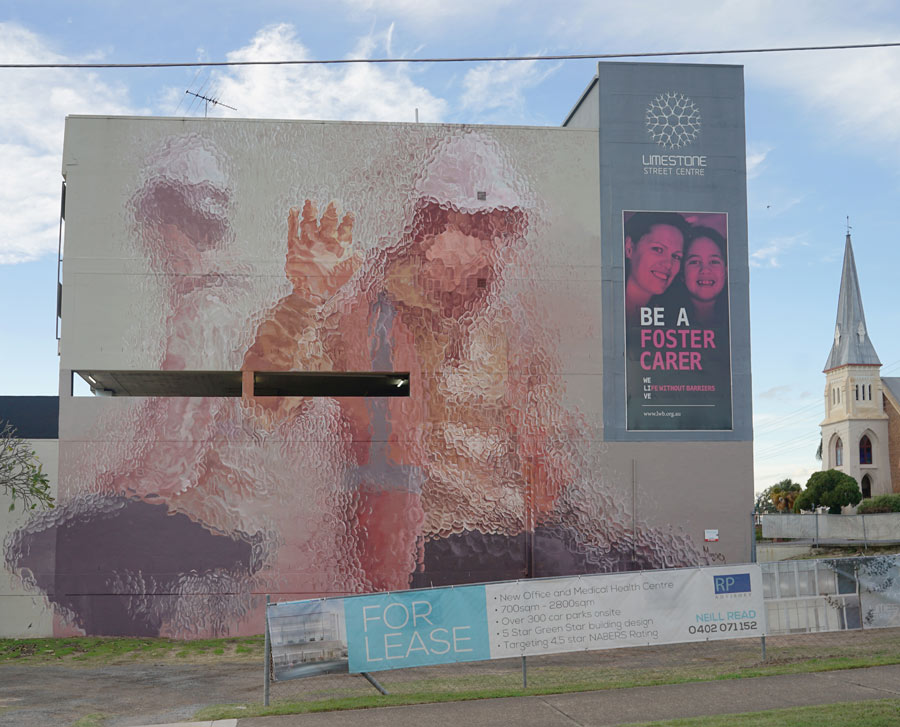
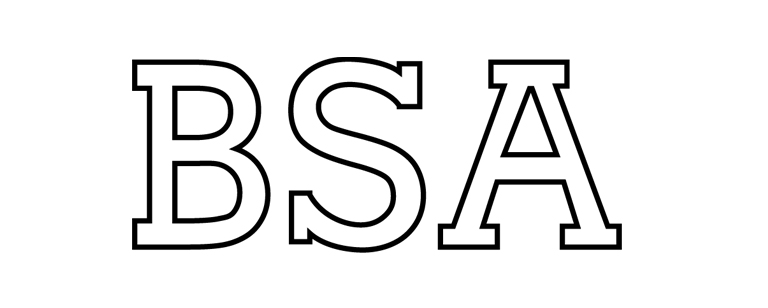 BROOKLYN STREET ART LOVES YOU MORE EVERY DAY
BROOKLYN STREET ART LOVES YOU MORE EVERY DAY
